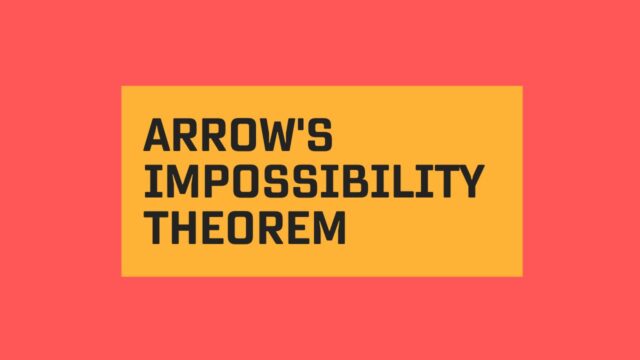
What is Arrow’s Impossibility Theorem
Arrow’s Impossibility Theorem is a key result in social choice theory, which studies how collective decisions can be made from the preferences of individual voters. The theorem states that it is impossible to construct a voting system that satisfies certain basic desiderata: namely, it must be universal (any voter must be able to express their preferences), non-dictatorial (the preference of any single voter should not determine the winner), and independent of irrelevant alternatives (the outcome should not change if two candidates are swapped). While Arrow’s Theorem may seem pessimistic at first glance, it actually highlights the need for careful thinking about how collective decisions should be made. Without understanding the basic limitations of voting systems, it would be all too easy to make bad decisions that fail to take into account the wishes of everyone involved.
What are some of the implications of the theorem
Arrow’s Theorem has far-reaching implications for democratic theory and politics. It suggests that there is no “perfect” voting system, and that any voting system is likely to be flawed in some way. As a result, Arrow’s Theorem has led to a greater focus on the study of voting systems and their implications for democracy. It has also inspired reformers to search for alternative ways of aggregating preferences, such as deliberative democracy and sortition. Arrow’s Theorem is an important contribution to social choice theory, and its implications are still being explored today.
How has it been used in politics and economics
Arrow’s Impossibility Theorem is a mathematical proof that it is impossible to construct a fair voting system. The proof is based on a set of Arrow’s four fairness criteria: Arrow’s conditions, which are generally accepted as being necessary for a voting system to be fair. The theorem states that if there are three or more candidates for an election, then it is impossible to create a voting system that satisfies all four of Arrow’s fairness criteria. As a result, Arrow’s Impossibility Theorem has important implications for politics and economics. In politics, it suggests that it is impossible to create a perfect democracy, as there is no way to ensure that everyone’s vote will be weighted equally.
In economics, Arrow’s Impossibility Theorem has been used to study a variety of topics, including the efficiency of markets and the allocation of resources. Arrow’s Impossibility Theorem is a powerful tool for understanding voting systems and their limitations. It highlights the importance of ensuring that arrows Conditions are met in order to create a fair and representative democracy.
What are some criticisms of the theorem
The theorem has been criticized on the grounds that Arrow’s conditions are too restrictive, and that there are voting systems that satisfy some of Arrow’s conditions but not all of them. Another criticism is that Arrow’s Impossibility Theorem only applies to voting systems where there are three or more choices, and that it is possible to construct a voting system that satisfies Arrow’s conditions if there are only two choices. Finally, some critics have argued that Arrow’s Impossibility Theorem is not really a theorem at all, because it does not prove that it is impossible to construct a voting system that satisfies Arrow’s conditions, but only that it is impossible to do so using the methods Arrow proposed.
What does the future hold for Arrow’s Impossibility Theorem?
In the more than 50 years since the theorem was first proved, it has been widely studied and refined. Today, Arrow’s Impossibility Theorem is widely regarded as one of the most important results in economics. While the theorem has been highly influential, some economists have questioned its relevance to real-world situations. In particular, many believe that Arrow’s assumptions are too restrictive to be applicable to most voting systems. As a result, there is much debate about the future of Arrow’s Impossibility Theorem. Some believe that the theorem will continue to be an important tool for understanding voting systems, while others believe that it will eventually be discarded as too simplistic. Only time will tell what the future holds for Arrow’s Impossibility Theorem.


































